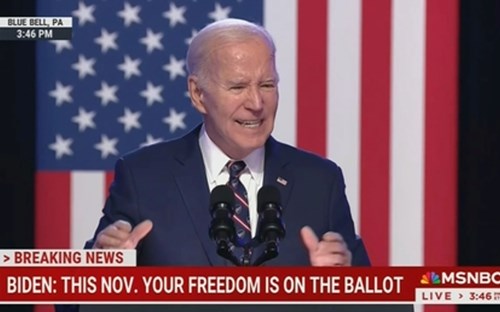The vote was 14-0. The U.S. abstained from voting against a measure that did not tie a ceasefire to the release of Hamas-held hostages, a previous U.S. position.
The ceasefire is intended for the ongoing Muslim holy month of Ramadan, which ends April 9.
The ceasefire encourages the release of the hostages but does not make that a condition of the ceasefire, The Associated Press reported.
 After that decision by the Biden administration, Israeli Prime Minister Benjamin Netanyahu canceled a planned visit to Washington by a high-level military delegation that was coming to discuss the Rafah offensive. The city is the target of a planned IDF offensive.
After that decision by the Biden administration, Israeli Prime Minister Benjamin Netanyahu canceled a planned visit to Washington by a high-level military delegation that was coming to discuss the Rafah offensive. The city is the target of a planned IDF offensive.
Netanyahu accused the U.S. of “retreating” from what had been a “principled position,” the AP reported.
Before Monday’s events, China and Russia used their veto power to shut down a U.S. resolution calling for a truce and hostage release - but not a permanent ceasefire.
The U.S. last week warned that the Ramadan respite could hurt ongoing ceasefire negotiations between the U.S., Egypt and Qatar.
A shift from 'tears and sorry'
Lela Gilbert, senior fellow for international religious freedom at The Family Research Council, agrees with that warning from last week. She told the Washington Watch program last Friday that a softening stance by the U.S. is “part of the game” in an election year, particularly as President Joe Biden tries to strengthen his hand in Michigan, a swing state with thousands of Muslim voters.

“What we’re looking at now is how all this interfaces with the upcoming election,” Gilbert told show host Joseph Backholm. “We’ve shifted from tears and sorry coming from our U.S. government to now this kind of nudging, trying to find ways to put a stop to the war.”
Despite pressure from the U.S., Netanyahu has been firm that the war will not stop until Israel has eradicated Hamas. He says he has overwhelming support from the people of Israel, who watched men, women and children lost in the Oct. 7 Hamas rampage of murder and kidnapping.
“We have to remember what happened on October 7th, which was the absolute genocide, the most brutal killing of Israeli women, children, babies, it was unbelievably bad," Gilbert, who lived in Israel for a decade, said. "That’s not front of people anymore. What’s in front of them now is the continuing efforts of the idea to clean Hamas out of Gaza.”
U.S. policy driven by Michigan polling?
Gilbert says the coming November election is “100% influencing” decisions from the Biden administration right now.
Recent polling shows Donald Trump with an eight-point lead over Biden in a potential head-to-head matchup in Michigan. Biden officially won Michigan in 2020 50%-47%.
 “Some protesters in Michigan were essentially drawing a line. It’s 100% influencing the way things are going” with the U.S.’s Israel policy, Gilbert said.
“Some protesters in Michigan were essentially drawing a line. It’s 100% influencing the way things are going” with the U.S.’s Israel policy, Gilbert said.
“There’s been an effort to kind of swing back and forth," she continued. "The war continues, but now the focus is on famine amongst the victims who are innocent. I don't know how innocent, but many of the people that are stranded in the cities that are being looked at now, they're definitely going to be sidelined and sometimes injured, and maybe some killed."
That means there needs to be compassion for those civilians, Gilbert added, but on the other hand Hamas is still fighting in Gaza, too.
Americans need to understand that sustained strength for Hamas is not good for civilians in Gaza, Gilbert said.
“The abstention of the U.S. ambassador to the United Nations is scandalous. It’s scurrilous.” (Gary Bauer, in an interview with AFN)
“It's doing nothing for the good people in Gaza, the ordinary citizens. It's not good for anyone. We should support every effort to clean house in these cities and get rid of as much of Hamas as possible,” she said.







